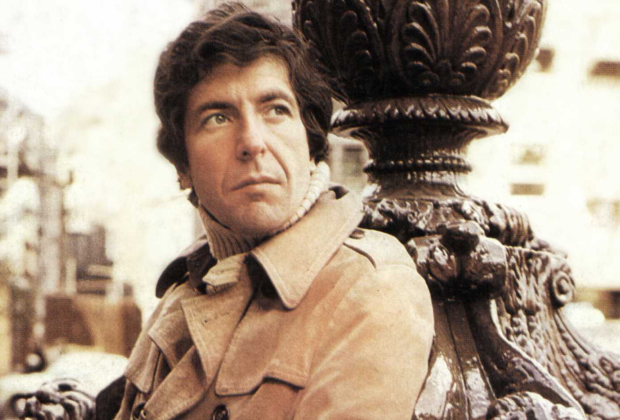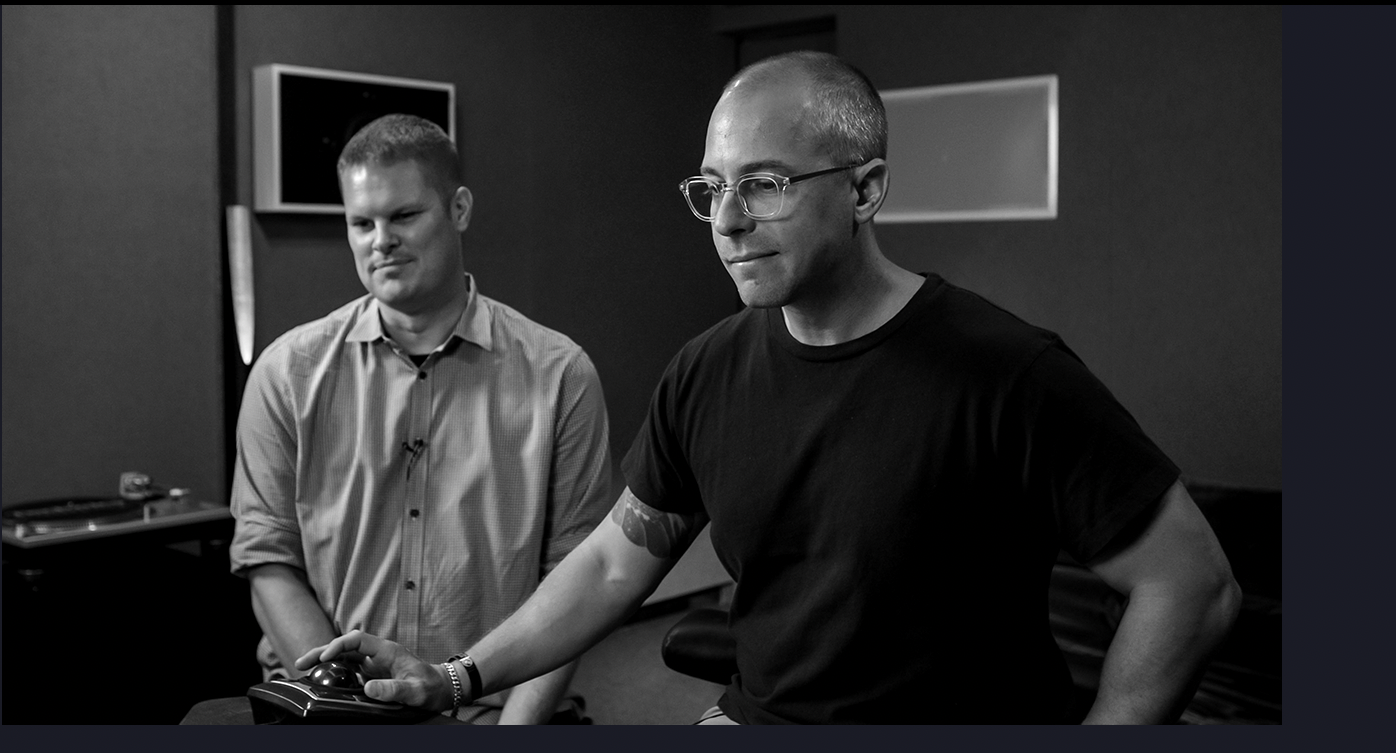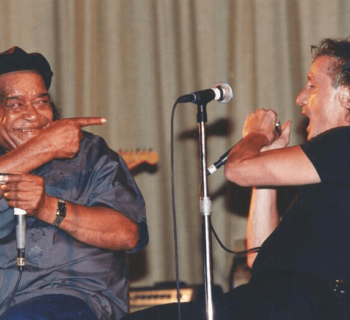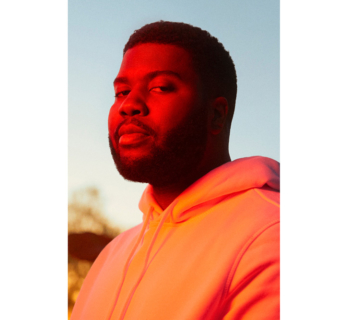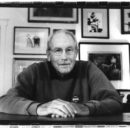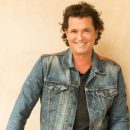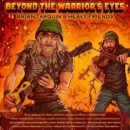Poet, novelist, singer-songwriter, artist, icon—there has never been a figure like Leonard Cohen. He was a true giant in contemporary western culture, entertaining and inspiring the world with his work. From his ground-breaking and bestselling novels, The Favourite Game and Beautiful Losers, to timeless recordings such as “Suzanne,” “Dance Me to the End of Love,” and “Hallelujah.”
With over 30 million albums worldwide and 12 published books, Cohen's influence on musical and theatrical artists the world over is inestimable. Cohen was honored as a Grammy Lifetime Achievement Award Recipient (2010), inducted into the Rock & Roll Hall Of Fame (2008), the Canadian Music Hall Of Fame (2006), the Canadian Songwriters Hall Of Fame (2006), and the Songwriters Hall Of Fame (2010). He received the prestigious Principe de Asturias Prize (2011), the Glenn Gould Prize (2011), Canada’s highest civilian honours - Officer of the Order of Canada (1991), Companion to the Order of Canada (2003), and the Grand Officer of the National Order of Quebec (2008).
His death on November 7, 2016 was felt around the world by the many fans and followers who would miss his warmth, humour, intellect, and piercing insights.
“Puppets,” the final video from the posthumous album Thanks for the Dance was released commemorating the fifth anniversary of Cohen’s passing.
The video marks the return of director Daniel Askill, who also created the “Happens to the Heart” video. Daniel worked closely with Leonard’s son, Adam Cohen, on this closing cinematic vision, the last of five videos created for the album. Shot in black and white, the emotive visual features artist and actor Bobbi Salvör Menuez, also in “Happens to the Heart,” exploring Cohen’s powerful lyrical themes of evil and control.
Released in 2019, Thanks For The Dance was an unexpected harvest of new songs from Leonard Cohen. Collaborating with producer (and son) Adam Cohen, friends and colleagues gathered to support and complete the work Leonard had begun, making an album that echoes the sounds of his catalogue, while remaining fresh, current, and resonant.
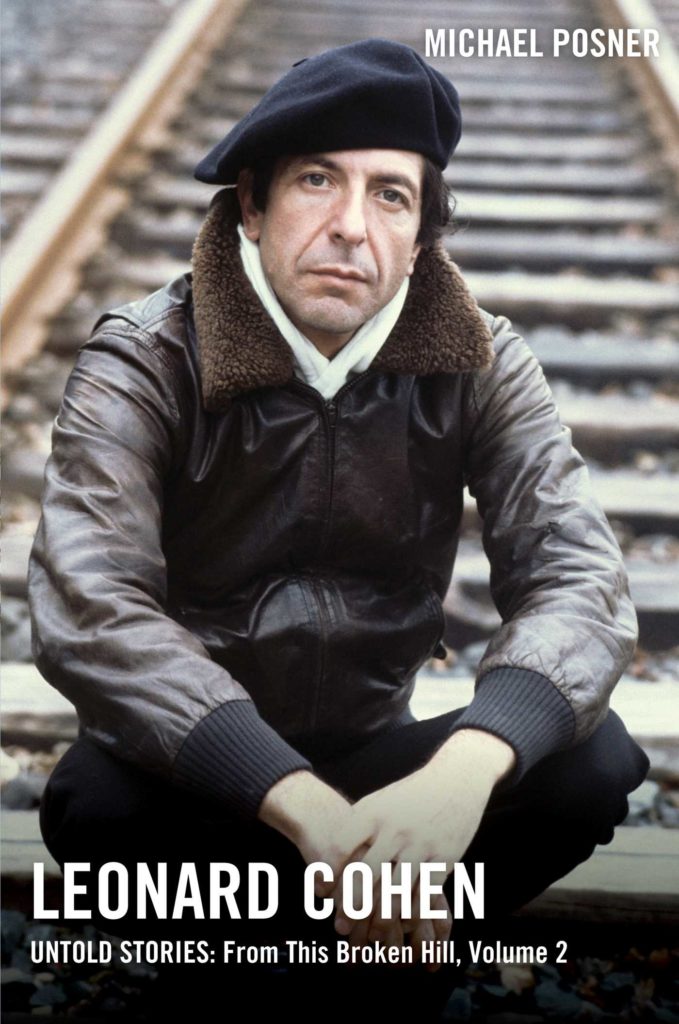 Michael Posner’s Leonard Cohen, Untold Stories From This Broken Hill, Volume 2 chronicles the full breadth of his extraordinary life. This second of three volumes—From This Broken Hill—follows him from the conclusion of his first international music tour in 1971 as he continued to compose poetry, record music, return to touring and search for meaning into the late 1980s.
Michael Posner’s Leonard Cohen, Untold Stories From This Broken Hill, Volume 2 chronicles the full breadth of his extraordinary life. This second of three volumes—From This Broken Hill—follows him from the conclusion of his first international music tour in 1971 as he continued to compose poetry, record music, return to touring and search for meaning into the late 1980s.
The book explores his decade-long relationships with Suzanne Elrod, with whom he had two children, and various other numerous romantic partners, including the beginning of his long relationship with French photographer Dominique Issermann and, simultaneously, a five-year relationship with a woman never previously identified.
It is a challenging time for Cohen. His personal life is in chaos and his career stumbles, so much so that his 1984 album, Various Positions, is rejected by Columbia Records, while other artistic endeavors fail to find an audience. However, this period also marks the start of his forty-year immersion in Zen Buddhism, which would connect him to the legendary Zen master Joshu Sasaki Roshi and inspire some of his most profound and enduring art.
In From This Broken Hill, bestselling author and biographer Michael Posner draws on hundreds of interviews to reach beyond the Cohen of myth and reveal the unique, complex, and compelling figure of the real man. Honest and entertaining, this is a must-have book for any Cohen fan.
Michael Posner is an award-winning writer, playwright, and journalist, and the author or coauthor of eight previous books. These include the bestselling Leonard Cohen, Untold Stories: The Early Years, Vol. 1, as well as the Mordecai Richler biography The Last Honest Man, and the Anne Murray autobiography All of Me, both of which were national bestsellers. He was Washington Bureau Chief for Maclean’s magazine and also managing editor of the Financial Times of Canada. He later spent sixteen years as a senior writer with The Globe and Mail.
I was an acquaintance of Leonard Cohen for over 45 years.
In the seventies I conducted a series of interviews with him for Melody Maker at his two Southern California residences, was present on a number of his Phil Spector-produced recording sessions at MCA/Whitney Studios in Glendale, and Gold Star Recording Studios in Hollywood, and noshed with Leonard a handful of times around Los Angeles this century.
In 2015 I wrote and assembled a coffee table size volume Leonard Cohen: Everybody Knows for Palazzo Editions currently published in six foreign languages. In 2016, the title was also published in Chinese and Russian.
If you’re interested in reading about my documentation of Leonard Cohen visit these well-respected Cohen-driven websites.
The Leonard Cohen Files www.leonardcohenfiles.com
Our Leonard Cohen Forum at www.leonardcohenforum.com is the meeting ... Multi-voice narrative memoir tribute to LC - by Harvey Kubernik (pdf) (Sept 23)
allanshowalter.com › 2019/10/29 › leonard-cohen-everybody-knows-...
In the March 1, 1975 issue of Melody Maker, the now defunct English music weekly, I discussed touring, music and his literary influences with Leonard one afternoon at the Continental Hyatt House in Hollywood, which followed his Troubadour Club engagement.
"I used to be petrified with the idea of going on the road and presenting my work,” he told me in our first interview. “I often felt that the risks of humiliation were too wide. But with the help of my last producer, Bob Johnston, I gained the self-confidence I felt was necessary. My music now is much more highly refined.
"When you are again in touch with yourself and you feel a certain sense of health, you feel somehow that the prison bars are lifted, and you start hearing new possibilities in your work.
"I don't have any reservations about anything I do. I always played music. When I was 17, I was in a country music group called the Buckskin Boys. Writing came later, after music. I put my guitar away for a few years, but I always made up songs. I never wanted my work to get too far away from music,” stressed Cohen.
"In the early days I was trained as a poet by reading English poets like Lorca and Brecht, and by the invigorating exchange between other writers in Montreal at the time.
"My tunes often deal with a moral crisis. I often feel myself a part of such a crisis and try to relate it in song. As far as the use of Biblical characters in such tunes as 'Story Of Isaac,' and 'Joan Of Arc,' it was not a matter of choice. These are the books that were placed in my hand when I was developing my literary tastes."
Simon & Schuster Canada has just published Michael Posner’s Leonard Cohen, Untold Stories From This Broken Hill, Volume 2.
Through the voices of those who knew him best—family and friends, colleagues and contemporaries, rivals, business partners, and his many lovers—the book probes deeply into both Cohen’s public and private life. It also paints a portrait of an era, the social, cultural, and political revolutions that shook the 1960s.
In this revealing and entertaining first volume, Posner draws on hundreds of interviews to reach beyond the Cohen of myth and reveal the unique, complex, and compelling figure of the real man.
He began work on Leonard Cohen, Untold Stories in December 2016.
Posner first saw Leonard Cohen read in January 1967 in Winnipeg, Canada at the University of Manitoba and later witnessed his 2013 Toronto concert.
Posner has done his homework. I was honored when Michael and his editor at Simon & Schuster asked me to pen testimonial praise for the first Cohen book back jacket along with several notable authors and poets. “Posner is our Cohen-centric tour guide. He has delivered an enthralling oral history, carefully weaving the multi-voice narratives to us in a revealing, deep-dive exploration. I eagerly await the next volume.”
In a November 2021 email, Posner said “Untold Stories: From the Broken Hill traces the arc of Leonard Cohen's life and career from 1971 until the fall of 1986. It's an intense, tumultuous period, both professionally and personally, as he struggles to secure a foothold in music and wrestles with the conflicting demands of stardom, a troubled, de facto marriage, a parade of other women, fatherhood, his on-going expression and the world of Zen Buddhism.”
In August 2020 I conducted an interview with Michael Posner about Cohen.
Q: What is the genesis of your Leonard Cohen book?
A: The genesis was actually the Mordecai Richler book. It had done pretty well critically, but not commercially. It struck me that Cohen was a much bigger name and was a book that could sell internationally. When I wrote him, about 2007, the only biography of any consequence was Ira Nadel’s Various Positions...but as you know, nothing happened then. He said no. I dropped the idea.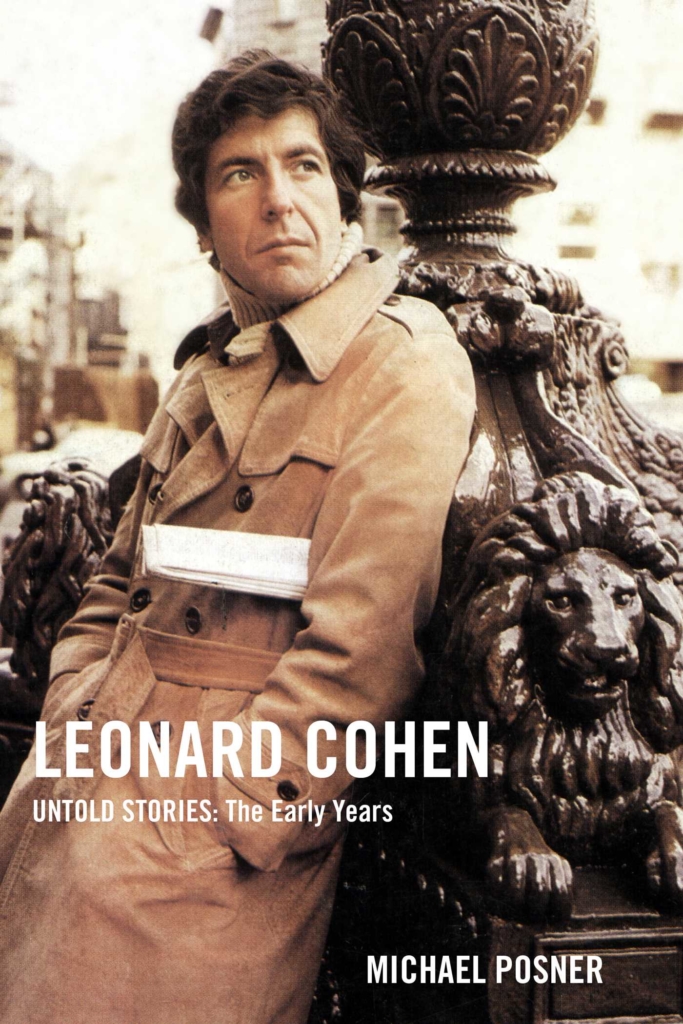
When he passed, Sylvie Simmons’ book was out—for four years— but I knew as a journalist that there had to other stories around. She had followed and fleshed out the familiar story line very well, but I knew there had to be hundreds of people who had stories or something new to say about him that had never been spoken to. The trick would be finding and persuading them to talk — hard, but less hard because he had passed
Q: What always drew you to Leonard's work? Your previous books are in other arenas.
A: I loved the music and the early poetry... but truthfully, I think my ambitions were journalistic. This was a guy of masks. He was very careful and skillful about his public presentation...Could some of those masks be stripped away? And what would be revealed? And would what might be revealed be connected to his work? So yes a fan, but that wasn’t the key. At the beginning it was just instinct—there had to be more. Had to be. But almost as soon as I started, I realized there was a, infinitely more and b, I had taken on a huge challenge, not only because I was seeking new voices on Cohen, but because I also had to cover the known narrative as well — it is after all a biography. So I’d need to find, if I could, new wrinkles even in the old stories. Sometimes I did, sometimes I didn’t. But with virtually every interview, I was coming away with new material. Not always home runs, usually singles, even bunts...but as it accumulated, I was confident that Cohen fans particularly, who can be obsessive, would want these stories—if I could find a publisher.
Q: And you embarked on this literary journey without a book deal, even schlepping to Los Angeles and other destinations.
A: Yes... Los Angeles, New York City, Hydra in Greece, Austin, Texas, London, England, Ithaca, New York a few times, San Francisco and Montreal several times.
Q: I happily turned over some leads to you not utilized in my own book on Cohen. I’m a record geek more interested in sound engineers, producers, studios and musicians and not the women, sex trips and drugs in my books. However I am curious if the Israeli woman I recommended from the bagel shop in the San Fernando Valley in California was for real?
A: Yes. Totally legit, but there’s a more interesting one in the second book.
Q: How did this actual book deal happen? Did you solicit a manuscript? A literary agent? I'm sure there were nibbles but there seemed to be a sense of destiny for the endeavor, let alone a multiple book deal for three volumes.
A: My initial proposal was initially rejected but then they changed their minds. And though they first said the full manuscript—then 600,000 words— would have to be cut dramatically, they changed their mind again and said let’s do three separate books so the cutting was minimized. I was hugely fortunate
Q: Even before doing additional research, further writing and editing the first book, tell me about some of your feelings and appreciation of Cohen's work before you really got going in the journey.
A: To be honest, I was not a student of his work before I began. I liked much of it, even most, but just as a fan, not any in-depth analysis... I did think that the first novel was largely autobiography, and that many of the songs were also, as he said of the song “Suzanne,” essentially reportage... the trick would be to decipher who is who in the lyrics.. Because like most writers, he wrote what he knew...The three books, then just a single volume, were largely done when I got the contract. I did develop a deeper appreciation for his work, his craftsmanship...his dedication, his genius...his ability to deploy the very specific to address the universal...the contemporary to reach the eternal.., and with humour..I do think many of the songs will last a very long time
Q: During the writing process, once the deal happened, and as you turned in volume 1, what changed or was really obvious now to you about Cohen as person and artist as a biographer?
A: Well, part of the answer is my appreciation for his gifts and his commitment to those gifts. On the human side, I saw a guy who really struggled...struggled with the consequences of fame on his life and art, struggled to keep pushing himself not to repeat himself... struggled, that is, to move the creative goalposts on himself... struggled hugely with relationships...his ‘marriage,’ his children, his many lovers.
None of this was easy...add to that his bipolar condition, which led to severe down periods...and you begin to see how complicated a life he led... he had trouble staying in one place...emotionally and physically... as soon as a sense of comfort or complacency or predictability was manifest, he checked out... and yet, for good friends, he was always there with time or money... and 95 per cent of the women he met, bedded and left, only speak in glowing terms about him and the positive impact he had on their lives. I think ultimately I came away with a sense that he’s impossible to reduce to one thing or another...he inhabited and expressed multitudes.
Q: What truly makes this book way different and essential for Cohenheads and the newly initiated? Why would Leonard appreciate your work?
A: The difference is two things. New stories told by people who we have never heard from before ...including some 20 women he had serious relationships with...most in the later books... but also close friends like Barrie Wexler and Henry Zemel.
I think and hope that, were he still with us, Leonard would savor the ambiguity, and the conflicting accounts.
Q: You employed the oral history multiple voice narrative method in this book, which I do as well. I like bringing the witnesses to the forefront and let them recall specifics. What are the pros and cons of this methodology? Did you utilize this concept in previous books?
A: The oral biography format gives you Leonard as Rashomon...this complicated multifaceted personality who presents himself in different ways to different people. As though he could read the kind of character he needed to be and manifest himself as that. The oral biography approach forces readers to make their own judgment about where the balance of truth might lie in any particular story or observation. The Richler book is oral biography as well. Its strengths are that it gives more weight and voice to people who actually knew him. There is no top-down, imposed interpretation of who Leonard was...that’s the good news ...the bad news is that the same virtue is a liability ...that readers might be confused by the myriad voices and the absence of a firm point of view.
Q: Can you give us some tips about the interview process for this book and your literary career? Is the secret to be a good listener? How do you get such good results? Also, is one reason because these yentas want to spiel on Leonard and really bring good stuff to the table?
A: Interview technique? Shut up. Don’t talk. Avoid the temptation. Listen. The more listening you do, the better the results. Also polite persistence—not everyone wants to talk, but with time and diplomatic overtures, some can be persuaded. The investment is often worthwhile
Q: What about the editing process?
A: Very complicated. First I had to transcribe the tapes… thousands of hours… so part of the editing occurred then...don’t transcribe what I won’t need. Some people appear once and some appear 30 times... so I had to locate where the quotes would go and then try to connect them to surrounding quotes as much as possible, being as faithful as possible to chronology. As to later edits, some ruthlessness was required. In Studs Terkel’s oral biographies, there’s more fidelity to the particular nuances of individual voice. Here, for editing sake, I had to lose that individuality, mostly. Having three books obviously made the cutting much easier than it would have been with one....though it was still painful at times...
Q: What about Cohen’s impact?
A: There are two impacts to measure. The current one, on other artists, is huge -- Nick Cave, Bono, Rufus Wainwright...all kinds of people have been profoundly influenced by his work.
I don’t think the late tours per se are meaningful, except to prove how big a star he actually was... in effect, it was a five-year farewell tour and a celebration of everything Cohen. So, yes he was a kind of father figure, but not just in a reflexive, honorary way...artists will try to duplicate what he was able to do.
The other impact to measure is the future and it’s just too soon to say...but I do believe they’ll still be playing a lot of his music in 100 years...if the planet is still viable.
Harvey Kubernik is the author of 20 books. Sterling/Barnes and Noble in 2018 published Harvey and Kenneth Kubernik’s The Story Of The Band: From Big Pink To The Last Waltz. For November 23, 2021 the duo has written Jimi Hendrix: Voodoo Child for the same publisher. Otherworld Cottage Industries in 2020 published Harvey’s book, Docs That Rock, Music That Matters. His writings are in several book anthologies, most notably The Rolling Stone Book Of The Beats and Drinking With Bukowski. This century Kubernik has written liner notes to CD re-releases of Carole King’s Tapestry, Allen Ginsberg’s Kaddish, Elvis Presley The ’68 Comeback Special, the Ramones’ End of the Century and a vinyl release for National Record Store Day Black Friday November 26, 2021 of the never issued Big Brother and the Holding Company (featuring Janis Joplin) Combination of the Two Live at the Monterey International Pop Festival.

